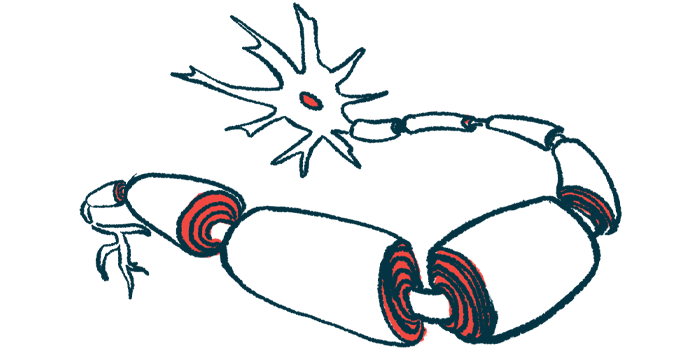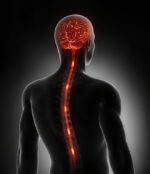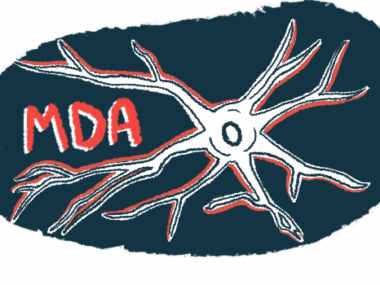Gene Therapy Targeting Motor Neurons in Brain May Help Treat ALS
Written by |

While it’s long been believed that the death of motor neurons in the spinal cord is the main cause of amyotrophic lateral sclerosis (ALS), new research suggests that degeneration of motor neurons in the brain takes place independently and may also contribute to the disease.
The study’s work in mouse models of ALS also indicates that a gene therapy given to increase the activity of a protein called UCHL1 could improve the health of these brain motor neurons.
“Our findings not only give legitimacy for targeting brain motor neuron health in ALS as a therapeutic intervention, it also reveals the first target gene that can help these neurons be revitalized,” Hande Ozdinler, a professor of neurology at Northwestern University and a study co-author, said in a press release.
The study, “Upper motor neurons are a target for gene therapy and UCHL1 is necessary and sufficient to improve cellular integrity of diseased upper motor neurons,” was published in Gene Therapy.
ALS is caused by the degeneration and death of motor neurons, the nerve cells that control movement. There are several different kinds of motor neurons, including upper motor neurons (UMNs) — which relay information from the brain to the spinal cord — as well as spinal motor neurons or lower motor neurons (LMNs), which extend from the spine to muscles throughout the body. These motor neurons communicate with each other in complex circuits to regulate movement.
Both UMNs and LMNs are damaged in ALS, but through underlying mechanisms that remain unclear. A longstanding belief has been that ALS mainly affects lower motor neurons first, with upper motor neurons becoming damaged and dysfunctional as a byproduct of the damage to LMNs.
Scientists at Northwestern used genetic engineering techniques to create mice that lacked the UCHL1 protein in either group of their motor neurons. UCHL1 is involved in ubiquitination, a process that cells use to regulate how proteins are recycled, and the lack of this protein is known to cause problems in motor neurons.
The researchers found that deleting UCHL1 in UMNs led to abnormalities in these motor nerve cells, and deleting this protein from LMNs likewise caused lower motor neuron abnormalities. However, “deletion of UCHL1 in the [lower motor neurons] did not have impact on the overall health” of upper motor neurons, the researchers reported.
This finding suggests that UMN degeneration in disease might not result solely from LMN degeneration, indicating that UMNs may be a useful target for therapies.
“We have discovered that the brain degenerates early in diseases like ALS, sends us warning signals and shows defects very early in the disease,” Ozdinler said. “Therefore, we need to repair the brain motor neurons if we want long-term and effective treatment strategies. The brain is important in ALS.”
In their initial experiments, the researchers used a viral vector to deliver a copy of the UCHL1 gene to mice’s motor neurons to confirm that restoring UCHL1 protein production could restore the health of these neurons. They then wondered whether the same approach could be used in diseases like ALS — using a viral vector to deliver a functional gene to cells is the basic premise of most gene therapies.
Researchers tested their UCHL1-delivering therapy in two mouse models of ALS caused by mutations, specifically mutations affecting the proteins SOD1 and TDP-43. In both models, UMNs showed signs of damage, and increasing UCHL1 protein levels lessened the damage.
“UCHL1 gene delivery only to the [upper motor neurons] of … mice [without its protein] was sufficient to improve the cytoarchitectural integrity and stability of diseased [UMNs], such that they become comparable to healthy” UMNs, the researchers wrote. “These results further prove the importance of UCHL1 for the health and integrity of UMNs and suggests UCHL1 as a potential candidate for gene therapy for diseased UMNs.”
They concluded that “directed gene delivery of UCHL1 to diseased [motor neurons] could offer a novel therapeutic intervention strategy” for ALS and other motor neuron diseases.
“This has huge clinical implications. Being able to modulate gene expression in diseased brain motor neurons in upper motor neuron disease patients is mind boggling,” Ozdinler said.
“Since movement starts in the brain, if we can make the brain motor neurons happy and healthy, if we can boost their health and integrity with directed gene delivery, we may begin to develop personalized treatment options especially for patients with upper motor neuron disease, who currently have no effective treatment options,” she added.






